Table of Contents
Nihil obstat
Rt. Rev. Msgr. J. G. Kealy
Censor
26 August 1954
Imprimatur

Samuel Cardinal Stritch
Archbishop of Chicago 26 August 1954
INTRODUCTION
by Joseph Cardinal Ratzinger
Prefect of the Congregation for the Doctrine of the Faith
Romano Guardinis book The Lord has helped more than one generation of Christians enter into a deeper relationship with Jesus Christ. When the book first appeared, it offered a new approach to the spiritual interpretation of Scripture for which young people in particular longed; a longing, I might add, which is being felt again in our own day.
The First World War was everywhere experienced as the collapse of the liberal dream of ever-advancing progress engendered by reason alone. This crisis of liberalism had great consequences for the Church and theology. Every rational Christianity which the liberal theologians had managed to develop was affected by it. Liberal Biblical interpretation, or exegesis, had actually prepared the ground for this crisis by its attempt to discover behind the veneer of dogma the true historical Jesus. Naturally, by the liberals way of thinking, the historical Jesus could be only a mere man. The liberals thought that everything supernatural, everything pertaining to the mystery of God that surrounded Jesus, was merely the embellishments and exaggerations of believers. Only with everything supernatural removed could the true figure of Jesus finally come to view! Already by the turn of the century, however, Albert Schweitzer had established that such an attempt would result only in contradictions: such a sanitized Jesus would not be an actual person, but the product of a historian.
As a student Romano Guardini had himself experienced the drama of liberalism and its collapse, and with a few friends he set out to find a new path for theology. What came to impress him in the course of this search was the experience of the liturgy as the place of encounter with Jesus. It is above all in the liturgy that Jesus is among us, here it is that He speaks to us, here He lives.
Guardini recognized that the liturgy is the true, living environment for the Bible and that the Bible can be properly understood only in this living context within which it first emerged. The texts of the Bible, this great Book of Christ, are not to be seen as the literary products of some scribes at their desks but rather as the words of Christ Himself delivered in the celebration of holy Mass. The scriptural texts are thoroughly imbued with the awe of divine worship resulting from the believers interior attentiveness to the living voice of the present Lord. In the preface to his book, Guardini himself tells us of the way in which these texts have arisen: We can only reverently pause before this or that word or act, ready to learn, adore, obey.
Clearly Guardini did not view his book as theology in the strict sense of the word, but more as a kind of proclamation or preaching. Nonetheless, he certainly did not fail to take into account the theological significance of what he had to say. Throughout The Lord Guardini struggled to come to the correct understanding of Jesus: All attempts to cleanse the figure of Jesus of the supernatural result in contradictions and meaningless constructions. One simply cannot strip the Wholly Other, the mysterious, the divine, from this Individual. Without this element, the very person of Jesus Himself dissolves. There simply is no psychological portrait of Jesus which can render His different features comprehensible solely from a human perspective. Repeatedly the attempted analysis of this Man takes us into that realm which is incomprehensible, into an incomprehensibility, however, full of measureless promise. The figure and mission of Jesus are forever beyond the reach of historys most powerful ray, because their ultimate explanations are to be found only in that impenetrable territory which He calls my Fathers will.
Guardini spoke in a similar way in 1936 in a small but invaluable book entitled
The Picture of Jesus the Christ in the New Testament, the result of his characteristically methodical reflections:
Perhaps we will not even succeed in arriving at the portrait of a person, but rather only at a series of sketches which stretch beyond our range of vision. Perhaps we will experience that the Ascension was not simply a unique occurrence in the life of Jesus, but rather above all, the manner in which He is given to us: as one vanishing into heaven, into the Unconditional which is God. However, if that is the case, then these bare sketches are most precious: They are signposts pointing us to the stepping beyond of faith; and insofar as they go beyond our vision, in fact, precisely because they go beyond our vision, they teach us to worship.
It is from such a way of thinking that the meditations arose which together make up this book. For Guardini the first step is always attentive listening to the message of the scriptural text. In this way the real contribution of exegesis to an understanding of Jesus is fully acknowledged. But in this attentiveness to the text, the listener, according to Guardinis understanding, does not make himself to be master of the Word. Rather, the listener makes himself the believing disciple who allows himself to be led and enlightened by the Word. It is precisely by repudiating a closed, merely human logic that the greatness and uniqueness of this Person becomes apparent to us. It is precisely in this way that the prison of our prejudices is broken open; it is in this way that our eyes are slowly opened, and that we come to recognize what is truly human, since we have been touched by the very humanity of God Himself.
One of Guardinis favorite expressions was, that which is truly real will arise from the rich, varied expansiveness of our existence, of our being fully Christian, and will lead us to the One who is truly real. As we are taught by Guardini, the essence of Christianity is not an idea, not a system of thought, not a plan of action. The essence of Christianity is a Person: Jesus Christ Himself. That which is essential is the One who is essential [Das Wesentliche ist der Wesentliche]. To become truly real means to come to know Jesus Christ and to learn from Him what it means to be human.
Our time is in many respects far different from that in which Romano Guardini lived and worked. But it is as true now as in his day that the peril of the Church, indeed of humanity, consists in bleaching out the image of Jesus Christ in an attempt to shape a Jesus according to our own standards, so that we do not follow Him in obedient discipleship but rather recreate Him in our own image! Yet still in our own day salvation consists only in our becoming truly real. And we can do that only when we discover anew the true reality of Jesus Christ and through Him discover the way of an upright and just life. Guardinis book The Lord has not grown old, precisely because it still leads us to that which is essential, to that which is truly real, Jesus Christ Himself. That is why today this book still has a great mission.
(TRANSLATED FROM THE GERMAN
BY JOHN M. HAAS, S.T.L., PH.D.)
AUTHORS PREFACE
Anyone who undertakes the task of writing about the life and person of Jesus Christ must know from the start what he means to do and recognize clearly the limitations which the subject necessarily imposes. One might comply with the present tendency and attempt a psychology of Jesus; the trouble is that a psychology of Jesus is an impossibility. A psychology of St. Francis, yesat least to the point where something beyond mere human nature stirs: that superhuman reality through which true humanity in Gods sense is established. St. Paul touches on the elusiveness of the spiritual man when he writes that he can judge everything, and he himself is judged by no man (I Cor. 2:15).


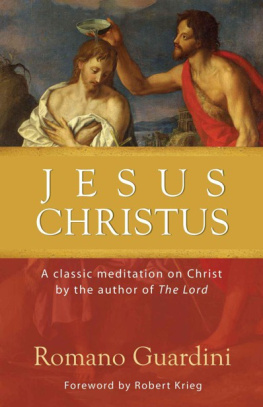
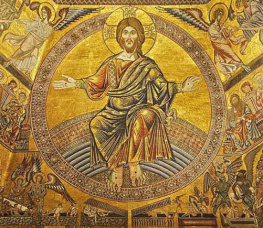
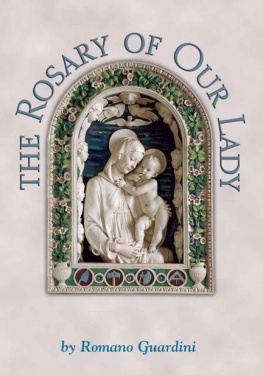
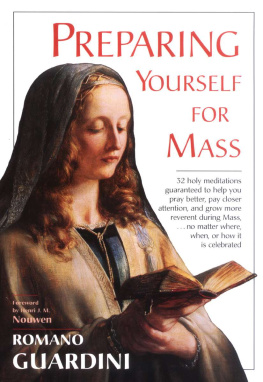
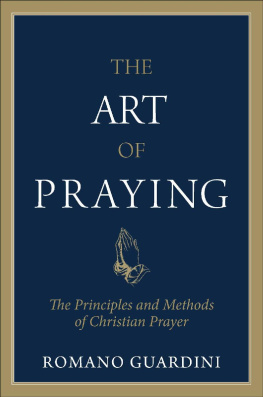
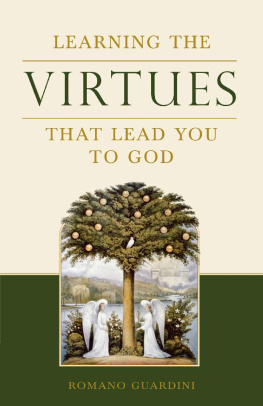
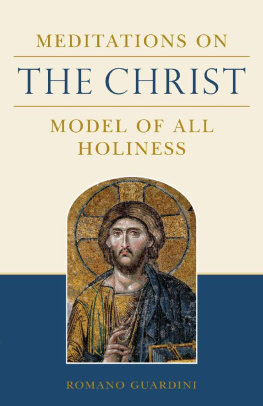
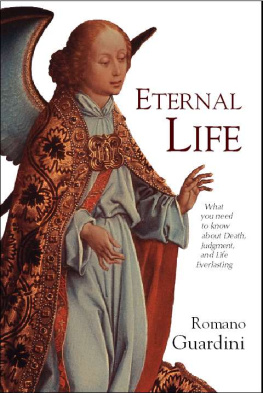
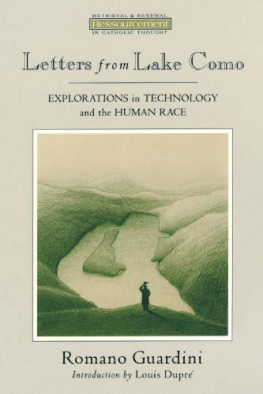
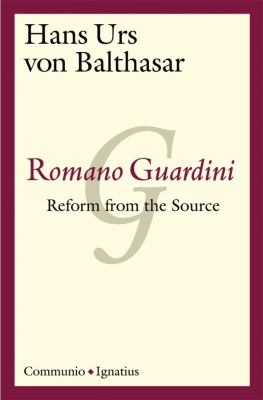
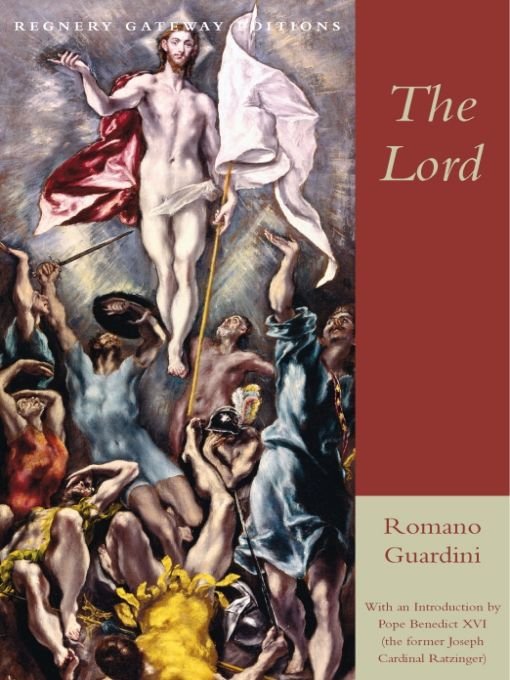
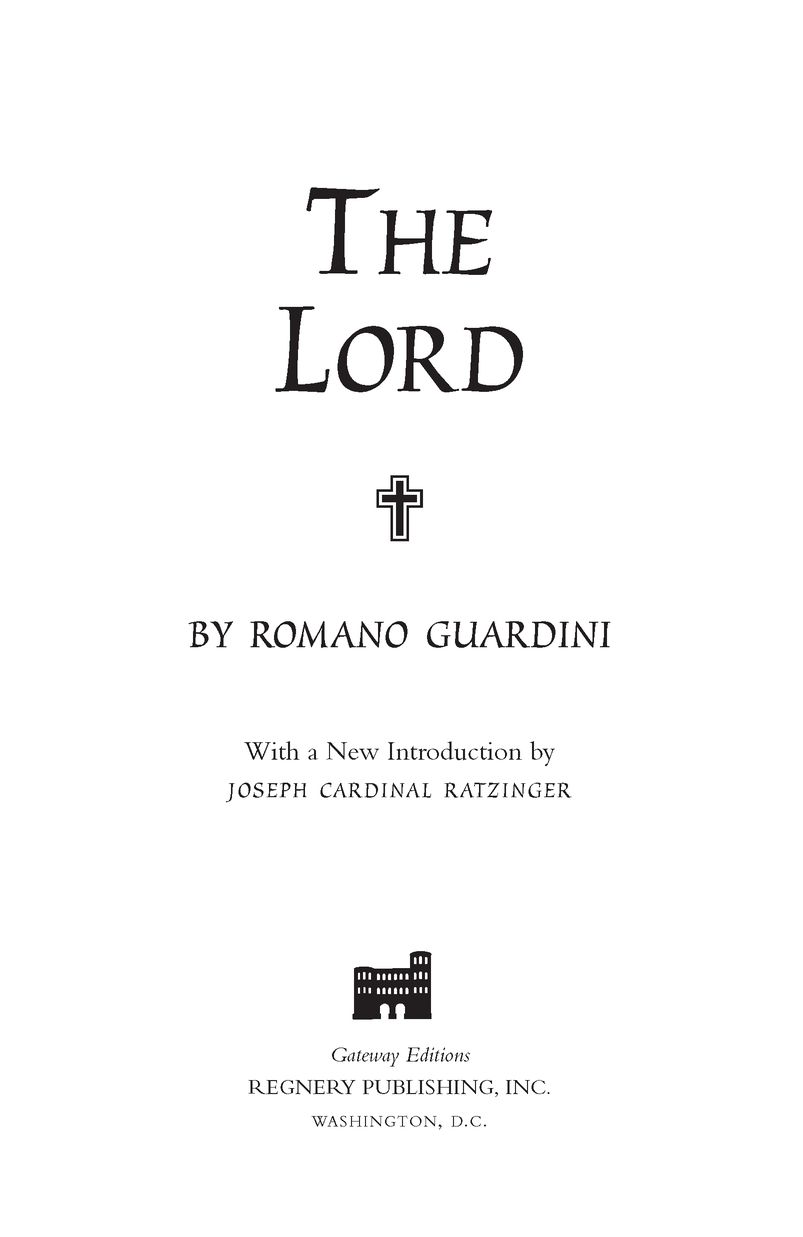
 Samuel Cardinal Stritch
Samuel Cardinal Stritch